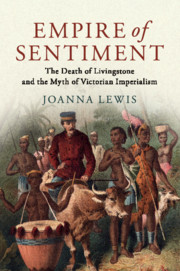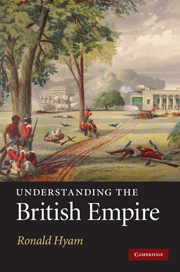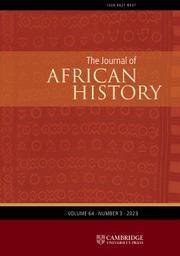Empire of Sentiment
This is the first emotional history of the British Empire. Joanna Lewis explores how David Livingstone's death tied together British imperialism and Victorian humanitarianism and inserted it into popular culture. Sacrifice and death; Superman like heroism; the devotion of Africans; the cruelty of Arab slavery; and the sufferings of the 'ordinary man', generated waves of sentimental feeling. These powerful myths, images and feelings incubated down the generations - through grand ceremonies, further exploration, humanitarianism, Christian teaching, narratives of masculine endeavour and heroic biography - inspiring colonial rule in Africa, white settler pioneers, missionaries and Africans. Empire of Sentiment demonstrates how this central African story shaped Britain's romantic perception of itself as a humane power overseas when the colonial reality fell far short. Through sentimental humanitarianism, Livingstone helped sustain a British Empire in Africa that remained profoundly Victorian, polyphonic and ideological; whilst always understood at home as proudly liberal on race.
- Proposes a new understanding of the role of emotion in the history of colonial rule in Africa and its legacy
- Highlights the role of myth and memory for Europeans and Africans in their understanding of colonial rule
- Explains why the British Empire was seen as a liberating and humanitarian empire for so long
Reviews & endorsements
'An enthralling analysis of the cult of Livingstone and what it tells us about Victorian imperialism, manly heroism and, above all, modern memory.' Joanna Bourke, Times Higher Education
'Lewis (international history, London School of Economics) situates the 1873 death of missionary David Livingstone in the context of moral imperialism and the impending division of Africa into European spheres of influence. Recommended.' S. L. Smith, Choice
'… [a] worthy contribution to the everburgeoning catalogue of Livingstoniana. Empire of Sentiment: The Death of Livingstone and the Myth of Victorian Imperialism manages to carve out new territory, in two ways in particular. First, Lewis uses the outpouring of grief that ensued when the news of Livingstone’s death reached Britain … to explore how emotion provided a key underpinning for the British Empire. Second, she provides a fresh look at the posthumous myth that came to surround Livingstone, situating it in the context of a twentieth-century colonial southern Africa that relied increasingly heavily on white supremacy enshrined in law, as well as in a postcolonial Africa in which black African rulers sought to shape Livingstone’s legacy for their own ends. Both of these strands are written about in lively and often elegant prose, at the same time as they convey a staggering amount of detail that is clearly the product of prodigious research.' Stephanie Barczewski, The American Historical Review
‘The especial value of what Lydon and Lewis offer rests in their detailed historical accounting: the particularity of the circumstances they survey in Australia and Africa, respectively. Both monographs contribute to a larger and more complex history of how feeling was manipulated across the British Empire.’ Jason R. Rudy, Victorian Studies
Product details
October 2020Paperback
9781316648230
304 pages
229 × 153 × 17 mm
0.451kg
16 b/w illus. 3 maps
Available
Table of Contents
- Prologue
- Introduction
- 1. 'A Parliament of philanthropy': the fight to bury Livingstone
- 2. Laying to rest a Victorian myth: The 'lost heart of the nation', Victorian sentimentality and the rebirth of moral imperialism
- 3. A perfect savagery: the Livingstone martyrs and the tree of death on Africa's 'highway to hell'
- 4. The graveyard of ambition: missionary wars, bachelor colonialism and white memorials, Chitambo, 1900–1913
- 5. White settlers, frontier-chic and colonial racism: how Livingstone's three Cs fell apart
- 6. 'The hearts of good men':
- 1973, the one party state and the struggle against apartheid
- 7. 'Chains of remembrance': Livingstone, sentimental imperialism and Britain's Africa conversation, 1913–2013
- Conclusion.







